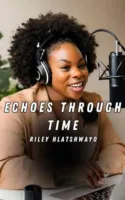At the core of oral tradition is the goal of preservation. It is why, through the power of our voice and gestures, we tell stories of the past to preserve our cultures, identities, and customs and pass them on from one generation to the next.
It is important to acknowledge and examine how storytelling and the use of oral tradition evolve with age, especially when it is championed by people with a love and reverence for it. I am thinking of people like Mam’ Gcina Mhlophe, whose dedication to oral storytelling is timeless and commendable and continues to inspire young people. Mam’ Gcina Mhlophe’s ability to bridge the gap between generations speaks to the timeless power of storytelling as a tool for cultural preservation and community-building, taking me back to mornings when I would turn on the TV and would stumble upon a fairytale story segment on SABC 1’s YoTV.
This evolution of oral storytelling as a medium that needed you to be present in real-time with someone next to you in the digital space where you can participate from wherever you are in the world is a testament to how culture is only resilient when we fight for it. Like how the poet and scholar Lebohang Masango carried this torch as a young person and ushered in a new generation of storytellers. Her children’s books have been published and republished repeatedly and translated into many South African languages. In allowing ourselves to grow and evolve, we find that the past can inform the present, and the present can shape the future.
I was speaking with Lunathi, 16, about this digital evolution of oral storytelling and how podcasts can fit in this description. A podcast is an audio file made available online for downloading, typically available as a series, with new instalments that subscribers get automatically. Nowadays, though, because we evolve, podcasts exist as videos, too, which people can watch on social media platforms or streaming sites like YouTube. Knowing Luna, she is always watching videos on YouTube or TikTok.
“What do you mean when you say a podcast informs oral storytelling?” is a question she asked me when I mentioned my article.
It is important to note that while oral tradition helped us understand who we are as a people and where we come from, through innovation and digital evolution, we’ve also reclaimed and reshaped it to represent who we are now. Radio stations have segments where a radio host has an audience of young people listening to a story being told or read out, and they participate either in the studio or online. It is the same with podcasts. We use our voices to tell stories, shape realities and preserve knowledge, but we use the internet instead of relying on word of mouth or rock paintings as an archival tool.
As we celebrate World Storytelling Day, we need to recognise the resilience of oral tradition in the face of changing times and inspire more people to embrace this because it is how we can ensure that we move along. Adapting to change is a tale as old as time. By embracing the past while embracing the future, we honour the storytellers who have come before us and pave the way for future generations.



